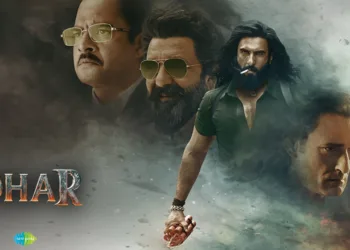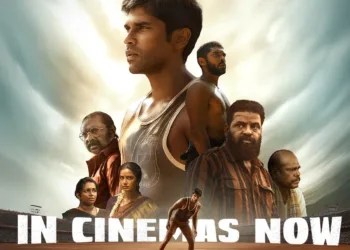The driver who delivers justice is returning. Lee Je Hoon opens up about bringing Kim Do Gi back for a third season, reuniting with his Rainbow Taxi family, and what makes this vengeance-fueled drama so special as it prepares to premiere November 21.
Table of Contents
Taxi Driver Season Overview
| Season | Air Date | Episodes | Key Highlight |
|---|---|---|---|
| Season 1 | Apr-May 2021 | 16 | Introduction of Rainbow Taxi team |
| Season 2 | Feb-Apr 2023 | 16 | Expanded revenge cases |
| Season 3 | Nov 21, 2025 | TBA | “Most complete” Rainbow Taxi version |
The Return of Rainbow Taxi
Based on a webtoon, “Taxi Driver” follows a mysterious taxi service delivering vengeance for victims failed by the justice system. Lee Je Hoon’s Kim Do Gi leads Rainbow Taxi—a vigilante operation disguised as a transportation company.
“It’s not easy for a drama in Korea to reach a third season,” Lee reflects with genuine gratitude. The accomplishment speaks volumes in an industry where even hit shows rarely extend beyond two seasons.

The actor credits passionate viewers for the show’s longevity: “Every time I hear that people are waiting for Season 3, it gives me strength.” This direct connection between cast and audience has fueled the franchise’s momentum through multiple years.
Family Behind the Scenes
The Rainbow Taxi team reunion wasn’t just professional—it’s personal. Lee Je Hoon reunites with Kim Eui Sung, Pyo Ye Jin, Jang Hyuk Jin, and Bae Yoo Ram, creating on-set chemistry that translates directly to screen magic.
“When Season 3 was confirmed, we congratulated each other in our group chat,” Lee shares. That group chat? Mostly everyday conversations about food and baseball—proof of genuine friendship beyond filming schedules.
The closeness creates challenges for maintaining character composure: “My character Do Gi is supposed to be serious, but there are times when it’s hard to hold it in because we start laughing just from looking at each other.”
For more K-drama behind-the-scenes stories and cast interviews, check our Korean entertainment coverage.
Director Collaboration Evolution
Season 3 brings special significance through director Kang Bo Seung—who served as assistant director during Season 1 and now helms the entire production. This promotion creates unique synergy between lead actor and director.
“It felt even more exciting and special to meet him again as the main director,” Lee explains. Their previous working relationship eliminated adjustment periods, allowing immediate creative synchronization.
The pair exchange ideas freely during filming, maintaining perfect creative alignment. This collaborative approach ensures Season 3 stays true to the franchise’s core while introducing fresh elements.
Crafting Kim Do Gi’s Alter Egos
Lee Je Hoon’s commitment to character depth shows in his meticulous approach to Do Gi’s disguises. Each undercover persona requires careful consideration—from vocal tone to physical appearance.
“I paid close attention to every detail,” the actor emphasizes. These alter egos allow Do Gi to infiltrate various scenarios, making each case unique and visually engaging.
Action sequences receive equal dedication: “I put a lot of effort into the action scenes, thinking, ‘I have to show even more thrilling action than in previous seasons.'” This competitive drive with himself ensures continuous quality improvement.
Watch Taxi Driver on Viki to see Lee Je Hoon’s action evolution across seasons.

What’s New in Season 3
While maintaining secrecy about specific plot points, Lee teases significant upgrades: “Viewers will be able to see a more complete version of Rainbow Taxi than in previous seasons.”
Enhanced Elements Include:
- Stronger team dynamics reflecting real-life cast chemistry
- Advanced action choreography pushing physical boundaries
- Hidden upgrades throughout episodes rewarding attentive viewers
- Cases exploring new types of injustice
The “three times more exhilarating” promise suggests amplified stakes and emotional intensity beyond previous seasons.
The Vengeance Justice Formula
“Taxi Driver’s” enduring appeal lies in its wish-fulfillment premise—bad people face consequences when legal systems fail. This resonates deeply with audiences frustrated by real-world injustices.
The show balances dark themes with satisfying resolutions, creating cathartic viewing experiences. Rainbow Taxi’s methods might be questionable, but their targets are undeniably deserving.
For analysis of revenge-themed K-dramas and moral complexity in Korean television, explore our drama analysis section.
Fan Anticipation Building
The November 21 premiere date positions “Taxi Driver 3” strategically for year-end viewership. Korean dramas typically avoid holiday periods, making this late November launch ideal for sustained attention.
Social media buzz suggests massive anticipation, with fans eager to see how Season 2’s cliffhangers resolve and what new cases await.
Why This Drama Matters
Beyond entertainment value, “Taxi Driver” sparks conversations about justice system limitations and victim advocacy. The show’s popularity reflects societal desires for accountability when institutions fail.
Lee Je Hoon’s dedication to portraying Do Gi with complexity rather than simple heroism elevates the material beyond standard revenge fantasy.
FAQs
Q: Do I need to watch Seasons 1 and 2 before Taxi Driver 3?
A: Yes, watching previous seasons is highly recommended. While each season features different revenge cases, the Rainbow Taxi team dynamics, character backstories, and Kim Do Gi’s personal journey continue across all seasons. Season 2 ended with significant developments affecting Season 3’s storyline. Both previous seasons are available on Viki and other streaming platforms to help you catch up before the November 21 premiere
Q: What makes Taxi Driver different from other revenge-themed K-dramas?
A: Taxi Driver stands out through its team-based approach rather than a lone vigilante setup. The Rainbow Taxi crew includes specialists in hacking, disguise, mechanics, and planning—creating Ocean’s Eleven-style operations. The show also balances dark subject matter with moments of genuine warmth and humor among the team members. Lee Je Hoon’s character uses intelligence and elaborate schemes rather than just physical violence, making the revenge plots more intricate and satisfying than typical vengeance dramas.
.








